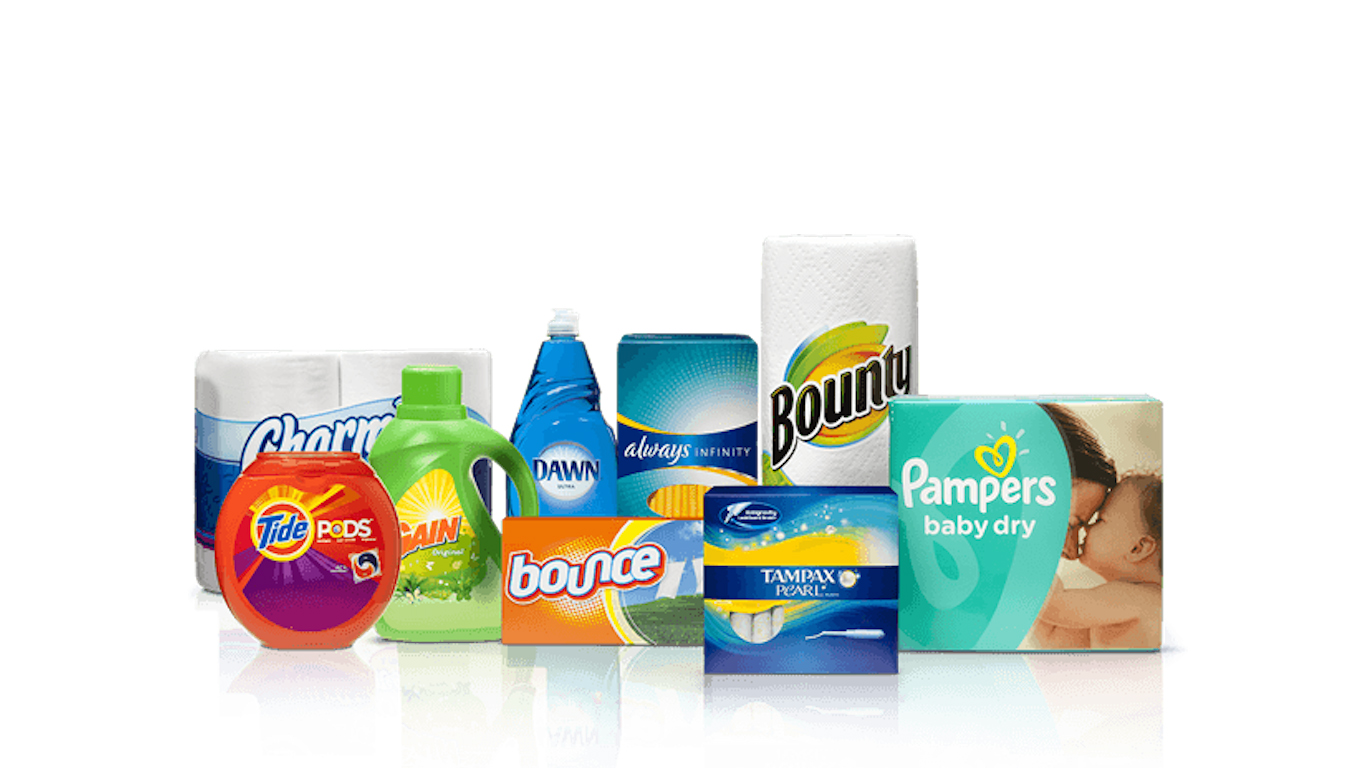Companies and Brands
P&G's Coronavirus Earnings Impact May Leave More Questions Than Answers

Published:

Procter & Gamble Co. (NYSE: PG) is perhaps one of the most defensive stocks that investors flock to during periods of market uncertainty. After all, the economy can rise and fall, but there is a good chance that diapers, paper towels, dish soap and other consumer products will be purchased by the masses regardless. It turns out that when major economies shut down, it can even spill over into companies such as Procter & Gamble.
The world’s largest consumer products maker announced on Thursday that the Covid-19 novel coronavirus is affecting its business in China. P&G’s Jon Moeller, who is vice chair, chief financial officer and chief operating officer, made some remarks at the Consumer Analyst Group of New York 2020 Conference concerning what is its second-largest market for sales and profits.
The market reaction was not negative. While that may seem good, it’s easy to see here that P&G may have just left the door open to a scenario in which there are more questions than answers.
Moeller warned about a “material impact” that did not come with any specific cut to P&G’s guidance. His first comments said:
We face the demand and supply challenges associated with the coronavirus outbreak. China is our second largest market—sales and profit. Store traffic is down considerably, with many stores closed or operating with reduced hours. Some of the demand has shifted online but supply of delivery operators and labor is limited. There are also impacts outside of China: travel retail, a significant reduction in department store traffic in many Asian metro areas, and global supply. We access 387 suppliers in China that ship to us globally more than 9,000 different materials, impacting approximately 17,600 different finished product items. Each of these suppliers faces their own challenges in resuming operations. The operating challenges change with the hour, and of course the path of the virus is unknown, making it very difficult to provide precise estimates of impact.
It appears that P&G is more concerned about the first quarter of 2020 than the whole fiscal year. Despite noting that China’s numbers will be “materially impacted” for sales and earnings, Moeller said:
We continue to believe, based on what we know today, that our fiscal year top and bottom line guidance ranges—and I emphasize ranges—remain the right ones. We will continue to monitor the situation and obviously update you if and when a different reality becomes apparent.
The consumer products giant reported its earnings on January 23, and the stock hardly moved ahead of and after the report. The dividend-adjusted close of $125.56 ahead of earnings is more or less in line with the $126.00 share price on last look. P&G is a key component in the Dow Jones industrial average and S&P 500 because its $311 billion market cap dominates the entire field of consumer products companies.
With its January 23 earnings announcement, P&G’s David Taylor, board chair, president and chief executive, said:
We delivered another strong quarter of organic sales growth, core earnings per share and cash returned to shareowners. Our strong first half results enable us to further increase our outlook for the full fiscal year across each of these metrics and to increase our commitment of cash return to shareowners. Our focus remains on executing our strategies of superiority, productivity, constructive disruption and improving P&G’s organization and culture to deliver balanced top-line and bottom-line growth along with strong cash generation in a challenging competitive and macroeconomic environment.
P&G’s earnings announcement also included a forecast for 2020. The company lifted its organic sales growth to a 4% to 5% range from a prior 3% to 5%. That included a modest negative impact from foreign exchange offset by a positive acquisition and divestitures impact. At that time, which was only days after the first waves of the coronavirus news was coming out, the company’s guidance also noted:
The Company increased its guidance range for fiscal 2020 all-in GAAP diluted net earnings per share growth to 235% to 245%, noting that the comparison period is significantly depressed by the Gillette Shave Care impairment charges in fiscal 2019. P&G raised its fiscal 2020 guidance for core earnings per share growth from a range of five to ten percent to a range of eight to eleven percent versus fiscal 2019.
The Company is not able to reconcile its forward-looking non-GAAP adjusted free cash flow productivity measure without unreasonable efforts because the Company cannot predict the timing and amounts of discrete cash items, such as acquisitions, divestitures, or impairments, which could significantly impact GAAP results. The Company increased its estimate for fiscal 2020 adjusted free cash flow productivity from 95% to 100%.
The Company now expects to pay over $7.5 billion in dividends and repurchase $7 billion to $8 billion of common shares in fiscal 2020. This compares to prior guidance of over $7.5 billion in dividends and $6 billion to $8 billion of common share repurchases.
Procter & Gamble stock traded up almost 50 cents at $125.91 Thursday morning. Its 52-week trading range is $97.75 to $128.09, and Refinitiv’s consensus analyst target price was $130.20.
Thank you for reading! Have some feedback for us?
Contact the 24/7 Wall St. editorial team.